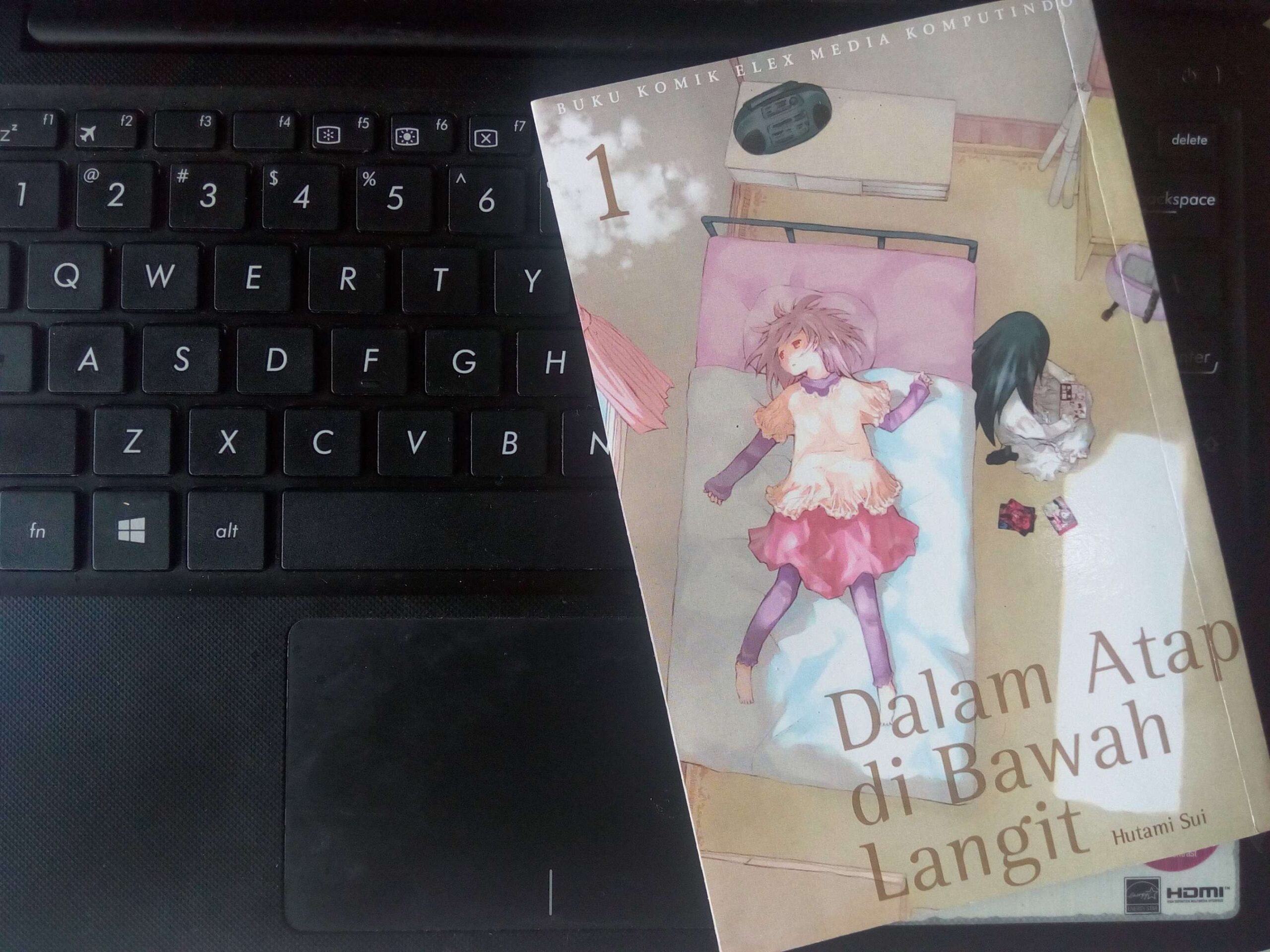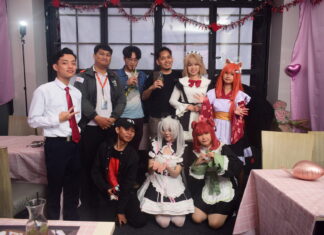One afternoon a week after my graduation, I read on the internet about a comic that tells the story of a NEET (a category referring to people who are Not in Education, Employment, or Training). When I learned that the comic has been published in Indonesia, I tried to look for it at an old comics store, and luckily I found a copy of the first volume. What’s interesting about this comic is, though at first I thought it would turn out to be another comedic story of a jobless guy who complains about his miserable his life while being a shut-in otaku, it turns out to be more realistic than I thought. I got absorbed to the story since I can relate with the main characters being in a more or less similar situation.
Sora no Shita Yane no Naka, roughly meaning “Under the Roof Beneath the Sky,” is a 4-panel comic created by Hutami Sui. It was first serialized in Houbunsha’s Manga Time Kirara magazine and the two collected volumes have been published simultaneously in Indonesia by Elex Media Komputindo in 2011 with the title of Dalam Atap di Bawah Langit.
The comic mainly tells the story of Kanae, who has just graduated from high school. She didn’t continue her studies to a university and she hasn’t started to work in a company either, thus she describes herself as a NEET. The 4-panel comic goes on with Kanae’s daily life as a NEET and her struggle to get a job, while some of her friends—who already have works—also appear.

The introduction part tells about Kanae’s concern after graduation. She was struggling in school with a lot of studying, homework, and exams. Once they all came to end, at first she thought she’d have a good life afterwards. But with her decision (or indecision, to be exact, since she didn’t know what to do next) of neither going to college nor getting a job, she found herself as a NEET. She started to have a lot of free time at home, going around aimlessly, while constantly getting rash (yet true to life) scolding from her mother about her joblessness. She also met some of her friends who are already working, one of them is Mayu who works as cashier. She admired her, to the point that she started to think to get a job, but she had to face the reality that she didn’t have that much motivation to take on the routinity of a working person.
This is actually the situation that happens to a lot of fresh graduates, be they from high school or university. It’s not uncommon to complain about how hard it is to study while also dealing with homeworks and exams, and even with work, if they have part time gigs. But once one graduates, that doesn’t mean everything is done. While responsibilities at school are gone, there are still urgings to take the duty of becoming a good citizen, especially from family. Though looking at friends who has gotten jobs can be discouraging too, since even though they have steady income the get by on their own, having little time to rest seems to be a painful price to pay.

In Kanae’s case, trying to move on to get a job is particularly challenging since she graduated from a high school designed to prepare its students to continue their studies at the university, but she didn’t go to one. She did not have any special skills since she didn’t graduate from a vocational high school, either, nor she had motivation to take any training to do something difficult in order to be qualified for some specific jobs.
These are some of the anxieties that a jobseeker could relate to. Maybe our qualifications do not match the employer’s expectations, making us feel that many jobs don’t make use of anything that we’ve learned so hard from our long and arduous studies.

But even though the comic shows how harsh the reality of being a job seeker can be, I think it isn’t only about the hardships. The comic still takes its readers to a lighthearted but uplifting transformation of a former student to become a citizen. We still can laugh at how Kanae learns to face the society where everything, in many ways, does not come as easy as she wishes. It was not like Kanae was lazy all the time and started to become more pessimistic. It is more about how she does it step-by-step, gradually changing her way of thinking from a student to a society’s member.
The Indonesian translation of this comic by Ina Oktavianti is not much different from most translated comics in Indonesia. The translation uses standard formal Indonesian, which doesn’t always feel right if used for daily conversation. Sometimes it feels difficult to understand the jokes in some panels since the the text was translated literally. But in general, since I feel there are many similarities to the experience of job-searching in Japan and Indonesia, I think it doesn’t affect comprehension of the narrative that much.
At last, this comic might be good for youths who are still in education, or have graduated, or even already having the status of a working adult. The NEET Kanae can entertain you with her kind of charming simple-mindedness that it can motivate one in looking for a job.

The Indonesian Anime Times | by M Razif Dwi Kurniawan





